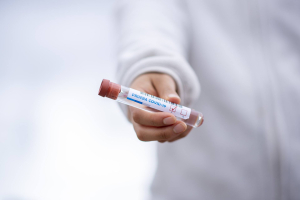After a freestanding emergency room billed an Austin, TX, man’s insurance carrier $10,984 for a COVID-19 test, the case has come under scrutiny. Ironically, the man is a physician and had been on staff at the emergency care clinic. The case has gained widespread attention after the doctor left his job and reported the incident to the nonprofit investigative journalism organization Pro Publica.

Both of these cases are outstanding examples of why continuous claims monitoring makes enormous sense for all self-funded corporate medical plans. Under continuous monitoring, charges like these are detected immediately and reported to medical benefits plan managers. When no oversight is in place, inappropriate and outlandish charges like these can go undetected for too long. These are instances when a medical claim audit company can help.
Serious overcharges also show up in medical plan claim audits if 100-percent of the claims are reviewed. While it provides another way to catch irregularities, it occurs longer after the fact when recovery of overpayments can be more complicated and time-consuming. When continuous monitoring is in place, many over-payments can be stopped because they are detected after the first one or two.
What’s also shocking is the material cost for a coronavirus antibody test is about $8, according to the information doctors have provided to ProPublica. One portion of the $10,984 testing bill covered physician’s services — $2,100 for a brief chat with an Emergency Room doctor that included no physical examination. The doctor-patient was shocked when a carrier paid the charges without question.
For companies with self-funded plans relying on large health plans for claims administration, having oversight (ideally in real-time) is essential. With increased medical costs putting additional strains on budgets every year, the only way to control costs is to monitor what is being paid out and its reasons. Sadly, some unscrupulous providers look for opportunities to overcharge when they can.
Continuous monitoring is a relatively low-cost service compared to the potential savings – and in most cases, it is either budget neutral or saves more than it costs. The data it produces is also an excellent management tool. When plan managers can have conversations with claims administrators or providers with recent, concrete data in hand, they are in stronger negotiating positions.
While it is true that a majority of claims are paid correctly, the cost of overcharges and other irregularities is significant – and you can never be sure when they will occur. The horror stories about COVID test overcharges are useful reminders about what can happen and how it can be prevented. Well-managed claims payments serve plan members better and save companies money.



